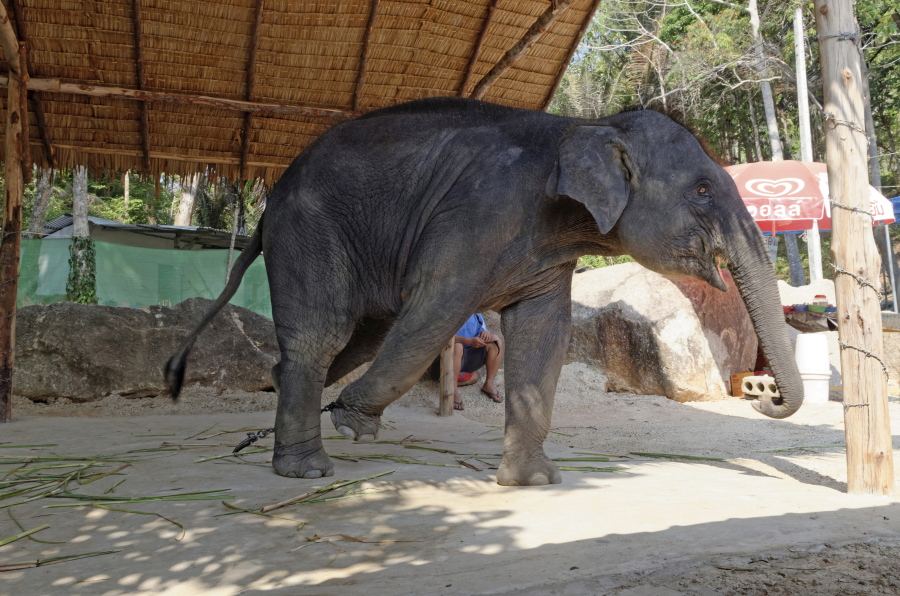BANGKOK — An animal protection group wants tourists to know that the elephants they are thinking about riding while on vacation in Thailand are probably miserable victims of abuse.
London-based World Animal Protection looked at almost 3,000 elephants working at entertainment venues in six Asian nations and found three out of four of the animals are living in poor and unacceptable conditions. It cited being chained day and night when not working, inadequate diets and unsatisfactory veterinary care, and harsh initial training “that breaks their spirits and makes them submissive enough to give rides and perform.”
The group wants tourists to be aware and counsels tour agencies to shun abusive venues. It says it has already convinced more than 160 travel companies to stop sales and promotion of venues offering elephant rides and shows.
A report released by World Animal Protection is part of a broader campaign by the group, which has also sought to expose the living conditions of other animals used to entertain, including tigers, macaques and bears.
“If you can ride, hug or interact with wild animals, chances are there’s cruelty involved,” said Dr. Jan Schmidt-Burbach, WAP’s wildlife and veterinary adviser and author of the elephant report.
Wildlife tourist attractions have become increasingly popular and profitable, meaning the industry is likely to expand, the report warned. “The cruel trend of elephants used for rides and shows is growing,” said Schmidt-Burbach. “We want tourists to know that many of these elephants are taken from their mothers as babies, forced to endure harsh training and suffer poor living conditions.”
The group identified venues by looking at travel guidebooks and similar resources and by visiting tourist areas most likely to offer elephant attractions. It then sent researchers to each venue at least once to document the animals’ situations. It found only 194 elephants at 13 venues to be living in acceptable conditions, the major criteria being that the animals do not perform and are not ridden by people.
“The elephants walked free during most of the day, were able to socialize with other elephants and were fed on natural vegetation at most of these venues,” the report said. “Tourists visiting these venues would observe elephants behaving naturally and direct interaction between visitors and elephants was usually prohibited or limited.”
The report surveyed elephants in Thailand, Laos, Cambodia, Nepal, Sri Lanka and India, but identified Thailand as the home of three-quarters of all elephants kept in captivity for entertainment purposes.
Thailand’s first animal cruelty law took effect in 2015, carrying up to two years in prison for torturing animals. But elephants are not covered by that law, or by a separate one on wild animals.




